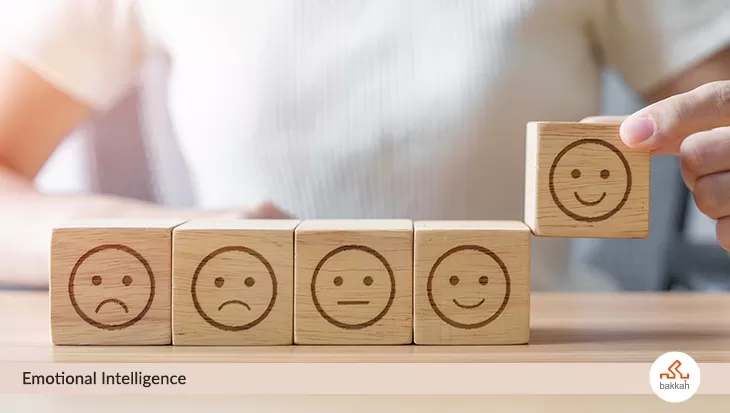Soft skills, also known as interpersonal or people skills, are the essential non-technical abilities that drive success in the workplace. They encompass a wide range of attributes, including communication, teamwork, leadership, problem-solving, adaptability, time management, emotional intelligence, conflict resolution, customer service, and professionalism.
While technical skills are vital for specific job functions, soft skills play an equally crucial role in personal and professional growth. In today's fast-paced and competitive professional landscape, possessing strong soft skills is essential for building strong relationships, resolving conflicts, fostering a positive work environment, and ultimately driving overall business success.
This article explores the significance of soft skills in the workplace and provides actionable insights on how to improve and leverage them effectively.
What are Soft Skills in the Workplace?
Soft skills in the workplace refer to personal attributes and interpersonal abilities that enable individuals to effectively interact with others and navigate various social situations. These skills are often intangible and difficult to quantify, encompassing traits such as communication, empathy, teamwork, adaptability, and emotional intelligence.
Unlike technical skills, which are specific to a particular job or field, soft skills are transferable across industries and play a crucial role in personal and professional success. They are essential for building strong relationships, resolving conflicts, and fostering a positive work environment.
Employers increasingly value soft skills alongside technical expertise, recognizing their significance in promoting collaboration, innovation, and overall productivity within an organization.

The Importance of Soft Skills in the Workplace
In today's professional landscape, possessing more than just technical prowess is essential for career advancement. Soft skills, characterized by personality traits that enhance relationships and problem-solving abilities, play a pivotal role in achieving professional goals.
Here is a breakdown of the importance of soft skills in the workplace:
1. Building Professional Relationships
Strong interpersonal skills are essential for building and maintaining positive relationships with colleagues, clients, and stakeholders. Soft skills like empathy and communication foster trust and mutual respect, laying the foundation for fruitful professional collaborations.
2. Enhancing Workplace Productivity
Soft skills boost workplace productivity by promoting efficient time management and clear communication. Individuals adept at these skills can streamline workflows, ensuring tasks are completed promptly and to a high standard.
3. Facilitating Organization
Organizational skills are integral to workplace success, enabling individuals to manage tasks efficiently and meet deadlines effectively. Soft skills like time management and attention to detail contribute to a well-organized work environment, ensuring projects progress smoothly.
4. Assessing Teamwork Aptitude
Success in the workplace often hinges on one's ability to collaborate effectively within a team. Soft skills such as active listening and adaptability enable individuals to contribute positively to team dynamics, facilitating smoother communication and problem-solving processes.
5. Developing Leadership Skills
Effective leadership requires a combination of technical expertise and soft skills such as communication, decision-making, and conflict resolution. Individuals who excel in these areas can inspire and motivate their teams to achieve their goals.
6. Boosting Self-Confidence
Confidence is key to navigating workplace challenges and inspiring others to perform at their best. Soft skills such as effective communication and problem-solving instill confidence in individuals, empowering them to tackle obstacles with assurance and poise.
7. Encouraging Initiative
Taking initiative is a hallmark of proactive and driven employees. Soft skills such as problem-solving and a positive attitude empower individuals to identify opportunities for improvement and take proactive steps to address them.
8. Promoting Adaptability
In today's fast-paced business environment, adaptability is a valuable asset. Soft skills like flexibility and resilience enable individuals to navigate change effectively, embracing new challenges and opportunities as they arise.
9. Demonstrating Long-Term Commitment
Employers value candidates who demonstrate dedication and a willingness to invest in the company's long-term success.
Soft skills like reliability and motivation serve as indicators of an individual's commitment to contributing positively to the organization over an extended period.
10. Expanding Your Network
Networking is essential for career growth and development. Soft skills like active listening and relationship-building enable individuals to forge meaningful connections with peers, mentors, and industry professionals, opening doors to new opportunities and collaborations.
11. Complementing Technical Proficiency
Soft skills go hand in hand with technical expertise, allowing individuals to effectively apply their knowledge in real-world scenarios.
For instance, a business development associate with robust communication skills can better articulate complex concepts, enhancing their ability to secure deals and foster client relationships.
12. Advancing Your Career
Soft skills are instrumental in career advancement as they demonstrate an individual's readiness for increased responsibility and leadership roles.
Employers value candidates who possess a strong combination of technical expertise and soft skills, as they are better equipped to drive organizational success.
Overall, while technical skills are necessary for specific job functions, soft skills are equally crucial for success in the workplace. They enhance individual performance and contribute to effective teamwork, organizational culture, and overall business success.

What are Soft Skills in the Workplace
Soft skills, also known as interpersonal or people skills, are non-technical skills essential for success in the workplace. They encompass communication, teamwork, leadership, problem-solving, adaptability, time management, emotional intelligence, conflict resolution, customer service, and professionalism.
Here's a more detailed explanation of soft skills in the workplace:
1. Communication
Effective communication involves more than just speaking or writing clearly; it also encompasses active listening, understanding non-verbal cues, and adapting communication styles to different audiences.
Strong communicators can articulate ideas, provide feedback, and foster understanding among team members, clients, and stakeholders.
2. Teamwork
Collaboration is essential in most workplaces. Teamwork involves working together towards common goals and diverse perspectives, contributing individual strengths, and resolving conflicts constructively.
Effective team players understand the value of cooperation, compromise, and shared responsibility in achieving success.
3. Leadership
Leadership is not limited to formal managerial roles; it can emerge at all levels of an organization. Effective leaders inspire and motivate others, set clear goals, make informed decisions, and provide guidance and support to team members.
Leadership skills include vision, integrity, empathy, and the ability to empower and develop others.
4. Problem-solving
In today's complex and dynamic work environments, the ability to solve problems efficiently and creatively is invaluable. Problem-solving skills involve identifying issues, analyzing root causes, generating innovative solutions, and implementing effective strategies.
Strong problem-solvers are critical thinkers who adapt to changing circumstances and turn challenges into opportunities.
5. Adaptability
The pace of change in the modern workplace requires employees to be flexible and adaptable. Adaptability involves being open to new ideas, technologies, and ways of working, as well as quickly adjusting to unexpected situations or setbacks.
Adaptable individuals thrive in dynamic environments and embrace change as a catalyst for growth and innovation.
6. Time management
Effective time management is essential for maximizing productivity and achieving goals. Time management skills include setting priorities, organizing tasks, scheduling deadlines, and minimizing distractions.
Individuals who excel in time management can optimize their workflow, minimize procrastination, and maintain a healthy work-life balance.
7. Emotional intelligence
Emotional intelligence (EI) refers to the ability to recognize, understand, and manage one's emotions, as well as empathize with the emotions of others. EI skills include self-awareness, self-regulation, social awareness, and relationship management.
Employees with high emotional intelligence are better equipped to handle stress, navigate interpersonal relationships, and communicate effectively.
8. Conflict resolution
Conflict is inevitable in any workplace, but how it is managed can significantly impact team dynamics and productivity. Conflict resolution skills involve listening actively, finding common ground, and negotiating mutually acceptable solutions.
Effective conflict resolution requires patience, empathy, and a commitment to maintaining positive relationships while addressing underlying issues.
9. Customer service
Strong customer service skills are essential for businesses focused on customer satisfaction. Customer service involves understanding customer needs, addressing concerns or complaints promptly, and delivering personalized solutions.
Employees who excel in customer service demonstrate patience, empathy, and professionalism, building trust and loyalty with clients or customers.
10. Professionalism
Professionalism encompasses a range of behaviors and attitudes that contribute to a positive work environment and uphold the integrity and reputation of the organization.
Professionalism includes reliability, punctuality, accountability, honesty, and respect for others. Upholding professional standards fosters trust, credibility, and mutual respect among colleagues and stakeholders.
Ultimately, soft skills complement hard skills and are essential for success in various roles and industries. They contribute to effective communication, teamwork, and leadership, fostering a positive work culture and driving overall organizational success.
How to Improve Soft Skills in the Workplace
Improving soft skills in the workplace is an ongoing process that involves a combination of self-awareness, training, practice, feedback, and continuous learning.
Here's a more detailed guide to how you can improve your soft skills in the workplace:
1. Self-assessment and Awareness
Start by evaluating your current soft skills. Reflect on situations where you have excelled or struggled with communication, teamwork, leadership, or other areas. Identify specific strengths and areas for improvement.
2. Training and Development Programs
Many organizations offer workshops, seminars, or online courses focused on developing soft skills. Take advantage of these opportunities to enhance your abilities in areas such as communication, emotional intelligence, time management, and conflict resolution.
3. Practice and Application
Put your newfound knowledge and skills into practice in your daily work. Actively seek opportunities to communicate effectively, collaborate with colleagues, lead projects, and resolve conflicts. The more you practice, the more confident and proficient you will become.
4. Seek Feedback
Don't hesitate to ask for feedback from colleagues, supervisors, or mentors. Request specific examples of your soft skills in action and areas where you could improve. Constructive feedback can provide valuable insights and help you identify blind spots.
5. Set SMART Goals
Establish clear, achievable goals for improving your soft skills. Use the SMART criteria (Specific, Measurable, Achievable, Relevant, Time-bound) to define the meaningful and actionable objectives. Break larger goals into smaller, manageable steps to track progress over time.
6. Continuous Learning
Stay curious and committed to lifelong learning. Seek resources such as books, articles, podcasts, and online courses to expand your knowledge and skills in areas relevant to your professional development. Stay informed about industry trends and best practices.
7. Peer Learning and Collaboration
Engage with colleagues to learn from their experiences and perspectives. Participate in peer coaching, mentorship programs, or cross-functional projects that provide opportunities for collaboration and skill sharing. Peer feedback and support can be invaluable for growth.
8. Practice Empathy and Active Listening
Cultivate empathy and active listening skills to better understand the perspectives and needs of others. Practice empathetic communication by putting yourself in the shoes of your colleagues or clients and actively listening to their concerns, ideas, and feedback.
9. Adaptability and Resilience
Embrace change and challenges as opportunities for growth. Develop resilience by learning from setbacks and failures, maintaining a positive attitude, and staying flexible in the face of adversity. Adaptability is a vital soft skill in today's rapidly evolving work environment.
10. Regular Reflection and Adjustment
Take time to reflect on your progress and experiences regularly. Evaluate what is working well and what could be improved in your approach to developing soft skills. Adjust your strategies and goals accordingly to continue your growth journey effectively.
Overall, by actively engaging in self-assessment, seeking out training opportunities, and practicing new skills in your daily work, you can gradually strengthen your soft skills and become a more effective and valuable asset to your organization.
Remember to seek feedback, set goals, and embrace continuous learning to ensure ongoing improvement and growth in your professional development journey.
10 Essential Soft Skills For A Job
Successful leaders today must possess several soft skills for a job. To consistently demonstrate these skills, you must go beyond simply knowing WHAT they are.
Furthermore, you also need to understand WHY and HOW these skills are important.
The ability to connect with others is a soft skill. You can see how you manage your time, how you make decisions, and how you behave. In addition, they show how you communicate and express yourself with your team.
To succeed in the modern workplace, you need to possess the following 10 soft skills.
Hence, start discovering why demonstrating the skill is critical for leaders and how to apply it.
Read through each to gain a better understanding:
1- Communication Skills in the workplace
Bosses are looking for communication skills more than anything else, but this one skill covers a lot of ground.
Using effective communication skills means:
- Paying attention to what other people say
- Interpreting the context of the conversation
- Expressing yourself clearly
- Persuading them of your point of view
- Checking your body language
- Using an engaging presentation style that won't intimidate or bore your audiences
Your personality traits can influence communication with others. Those who argue logically and clearly - according to facts - proved to create more cohesive arguments.
On the other hand, those who are sensitive to how others feel towards them contribute differently when communicating with others.
Neither approach is superior, but misunderstandings can happen if you do not understand the background of each personality you’re dealing with.

2- Adaptability Skills in a workplace
Being flexible and adaptable to situations is an indication that you can handle them. Therefore, your ability to cope with new concepts and shift plans is important to employers.
More job offers and higher salaries may result from mastering these essential skills. The ability to show such skills may even be assessed by employers during interviews.
Accordingly, you have to consider further developing your professional and soft skills during your summer job.
Visit career services for an appointment or a drop-in if you are looking for opportunities to develop these skills in your desired career.

3- Emotional Intelligence Skills in a Workplace
Managing your emotions and others' emotions plays a key role in developing your emotional intelligence skillset.
It consists of 5 Elements:
- Developing self-awareness
- Developing social skills
- Improving a self-regulating process
- Adapting a motivational approach
- Having an empathic response
Combined with these characteristics, emotional intelligence is best described at work in a few questions:
- In the workplace, are you capable of recognizing and regulating your emotions and reactions?
- Are you capable of building positive relationships with other individuals?
- Have you ever been able to empathize with others?
- Is it possible for you to give and receive constructive feedback that is both effective and constructive?

4-Time Management Skills For a Job
Time management doesn’t seem so crucial to everyone on your team, but it is. Being an effective leader is difficult if you are unable to manage your time efficiently.
The reason for this is that time management encompasses more than just managing your own time but also managing the time of others, as well as communicating expectations.
Considering everyone's current workload, balancing future needs, as well as allowing enough time for revisions before final approval are significant in managing your time to give an accurate estimation of completing the project.

5- Problem-Solving Skills For A Job
Solving problems successfully requires the ability to analyze challenges and come up with solutions, whether alone or in teams.
It involves the ability to think critically, make decisions, and be open to asking questions and exploring new possibilities.
The following are some of the reasons why problem-solving skills are needed at work:
- Discussing a problem calmly and objectively within a team environment
- Analyzing how different constituents are affected by a problem
- Identifying and evaluating potential solutions
- Deciding how the solution will be implemented

6- Critical Thinking Skills For A Job
Every employer seeks candidates who can analyze situations and make informed decisions. Therefore, it is important that you can understand problems, think critically, and come up with solutions.
This is regardless of whether you are working with data, teaching students, or repairing a home heating system.
Hence, it became an essential necessity to possess skills related to critical thinking, such as creativity, flexibility, and curiosity.

7- Collaboration Skills For A Job
The process of collaborating with others can be challenging, especially at work.
Nevertheless, people who believe they can handle work responsibilities alone without the assistance of others can create tension at work and compromise the efficiency of the organization as a whole.
Indeed, the ability to work with other colleagues, trust them and embrace their ideas are getting more challenging. You will, however, gain a competitive edge if you manage to accomplish this and be a cooperative team player.

8- Assertiveness Skills In The Workplace
Assertiveness is preferred by managers over all other styles, as it facilitates decision-making without creating conflict or alienating others.
Identifying your personality is the first step in understanding how you will react when conflict arises and addressing your shortcomings.
Eventually, you will have the opportunity to influence the rest of the team in order to achieve top results, as well as achieve your career advancement.

9- Openness to Feedback Skills In The Workplace
The ability to receive feedback is an invaluable part of emotional intelligence, but it is particularly relevant in the workplace, especially when a new role is being taken on.
If you respond defensively or take constructive feedback personally, you will not be able to hear the feedback and adapt it to your current strategy.
Feedback should be given and received out of kindness; as you are not getting constructive feedback due to distress towards you personally, but because they wish you the best.
It is imperative that you are eager to receive feedback that will assist you in achieving your goals more efficiently and effectively.

10- Growth Mindset Skills For A Job
You will inevitably encounter roadblocks, disappointments, and other situations that will frustrate you at some point in your career, regardless of your role.
In order to persevere, you need to cultivate a growth mindset, a conceptual framework that reflects your ability to grow and improve upon your skills, talents, and intelligence.
Those with a growth mindset may view a failure to meet a quarterly goal as an opportunity to identify their strengths and weaknesses in order to achieve the next goal.

Elevate Your Workplace Performance with Essential Soft Skills Training From Bakkah Learning!
Discover the vital role of soft skills in workplace success and explore specialized courses tailored to enhance your soft skills abilities.
From risk management to project management methodologies, Bakkah offers comprehensive training to equip you with the skills needed to thrive in today's competitive job market.
Dive into specialized courses like the Risk Management Professional (PMI-RMP) and Management of Risk (MoR) Certification to master the art of mitigating risks within projects and portfolios.
Explore project management methodologies with the Project Management Professional (PMP) course, ideal for honing leadership skills. Explore PRINCE2 methodologies or master project scheduling with our PMI Scheduling Professional (PMI-SP) certification.
Delve into Lean Six Sigma methodologies like Lean Six Sigma Yellow Belt, Green Belt, and Black Belt to streamline processes and drive productivity.
With Bakkah Learning as your partner in professional development, embark on a journey of growth, innovation, and success in today's dynamic business landscape. Don't miss out - enroll in these transformative courses from Bakkah Learning today!
Conclusion
In conclusion, soft skills are invaluable assets in the workplace, complementing technical expertise and contributing to individual and organizational success.
By cultivating effective communication, teamwork, leadership, problem-solving, adaptability, time management, emotional intelligence, conflict resolution, customer service, and professionalism, individuals can navigate various challenges and thrive in dynamic work environments.
Continuous self-assessment, training, practice, feedback, and lifelong learning are essential for improving and honing these skills over time. As individuals invest in their development, they not only enhance their performance but also contribute to a positive work culture and drive overall organizational success.
To conclude, soft skills are overlooked, in many cases, because they are difficult to measure, calculate, and quantify. Yet, to succeed in today's fast-paced, ever-changing work environment, you must master the mentioned soft skills.
Soft skills require training and practice in the same way that any technical hard skill must be practiced and refined. Therefore, your manager and teammates can provide you with feedback on what soft skills you need to improve. Just like your friends and family should do. Thus, never hesitate to ask your peers and team members for their feedback.
The goal is to accomplish a task as a vital member of an active team. Accordingly, utilize soft skills to get to know your teammates on a deeper level, develop trust, and support each other.


